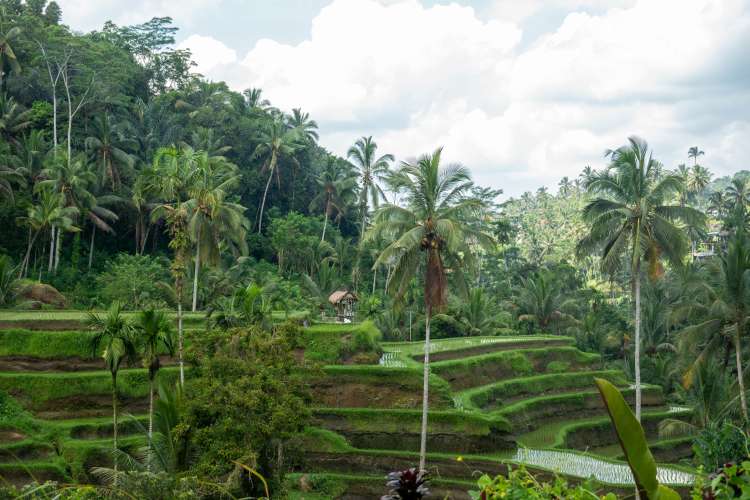Tags
Sustainable rice farming: An economic case for a new green revolution
Vidushi Karnani

Sustainable rice farming: India’s agricultural sector, with rice farming at its core, is both a powerful economic driver and a pillar of rural livelihood. Yet, traditional rice farming methods have exacted a high environmental toll, as the intensive water usage and greenhouse gas emissions associated with these practices raise pressing sustainability concerns.
With rice farming consuming nearly 40% of India’s irrigation resources, the urgency for change is evident. Fortunately, sustainable practices like Alternative Wetting and Drying (AWD) and Direct Seeded Rice (DSR) present a viable path forward, promising both economic benefits for farmers and ecological gains for the environment.
Sustainable rice farming
While sustainable rice cultivation is often promoted for its environmental benefits, the economic advantages are equally compelling. Both AWD and DSR reduce water requirements, which translates to lower input costs for farmers, who benefit from spending less on labor and water. Additionally, these methods enable farmers to generate income from carbon credits by lowering methane emissions. As global sustainability targets increasingly shape economic realities, farmers have the chance to monetise their contributions to emissions reduction—a particularly promising prospect as carbon markets continue to evolve.
The Indian government supports this transition through the National Mission on Sustainable Agriculture (NMSA), offering financial incentives and technical training to help farmers adopt AWD and DSR. By promoting these methods, the government not only champions sustainability but also strengthens farmers’ economic resilience for the long term.
Challenges of sustainable agriculture
Despite the promise of AWD and DSR, widespread adoption comes with challenges. Many farmers require technical knowledge and dependable support systems to transition from traditional methods. Without proper guidance, improperly implemented AWD or DSR could lead to yield losses, discouraging adoption. Therefore, extensive technical training is essential to help farmers apply these practices effectively and confidently.
The private sector can also play a critical role in this transformation. Initiatives like Bayer’s Rice Carbon Project demonstrate how private enterprises can offer technical support and financial incentives, enhancing both profitability and sustainable practice adoption. Such partnerships emphasise corporate responsibility and the necessity of a collaborative government-corporate effort to drive agricultural sustainability successfully.
Benefits and economic sustainability
The societal benefits of adopting sustainable rice farming practices such as AWD and DSR extend well beyond agriculture, influencing food security, rural employment, and economic stability. More efficient water usage helps alleviate pressure on India’s limited freshwater resources, conserving them for future generations and other essential uses.
By reducing reliance on labor-intensive irrigation, these methods can support a shift toward more modern, skilled jobs in rural areas, creating better economic opportunities and livelihoods in agricultural communities. In this way, sustainable farming becomes a foundation for broader economic stability, strengthening rural economies and making them less vulnerable to climate-related shocks.
Embracing AWD and DSR benefits not only farmers but also a diverse array of stakeholders, including consumers, businesses, and policymakers. For consumers, sustainable rice farming can stabilise rice prices by reducing input costs and minimising crop failure risks, ensuring a reliable food supply. Private sector entities, from agribusinesses to carbon credit brokers, also stand to benefit as the demand for sustainable agricultural products and environmental credits grows.
Way ahead for Indian agriculture
As climate change accelerates, the future of India’s agriculture hinges on the adoption of sustainable practices. AWD and DSR are not only innovative solutions but are essential for developing an agricultural system resilient to environmental challenges. These methods offer a way to balance ecological responsibility with economic growth, positioning Indian farmers as essential players in the fight against climate change while ensuring their financial well-being.
In scaling up AWD and DSR, India can achieve stronger environmental protection, greater resilience against climate fluctuations, and enhanced economic stability for its farmers. These practices support sustainable development and align with the UN’s Sustainable Development Goals by fostering responsible resource consumption, climate action, and ecological health.
The shift toward sustainable rice farming is ultimately about securing a prosperous future for Indian agriculture. By advancing AWD and DSR, we equip farmers to face an increasingly uncertain world with tools that strengthen both their livelihoods and the planet’s health. Sustainable farming is not just about feeding the present; it’s about nurturing the future. When we align our fields with nature’s balance, we plant seeds of resilience, prosperity, and hope for generations to come.
https://www.policycircle.org/environment/sustainable-rice-farming-in-india/Published Date: November 13, 2024






